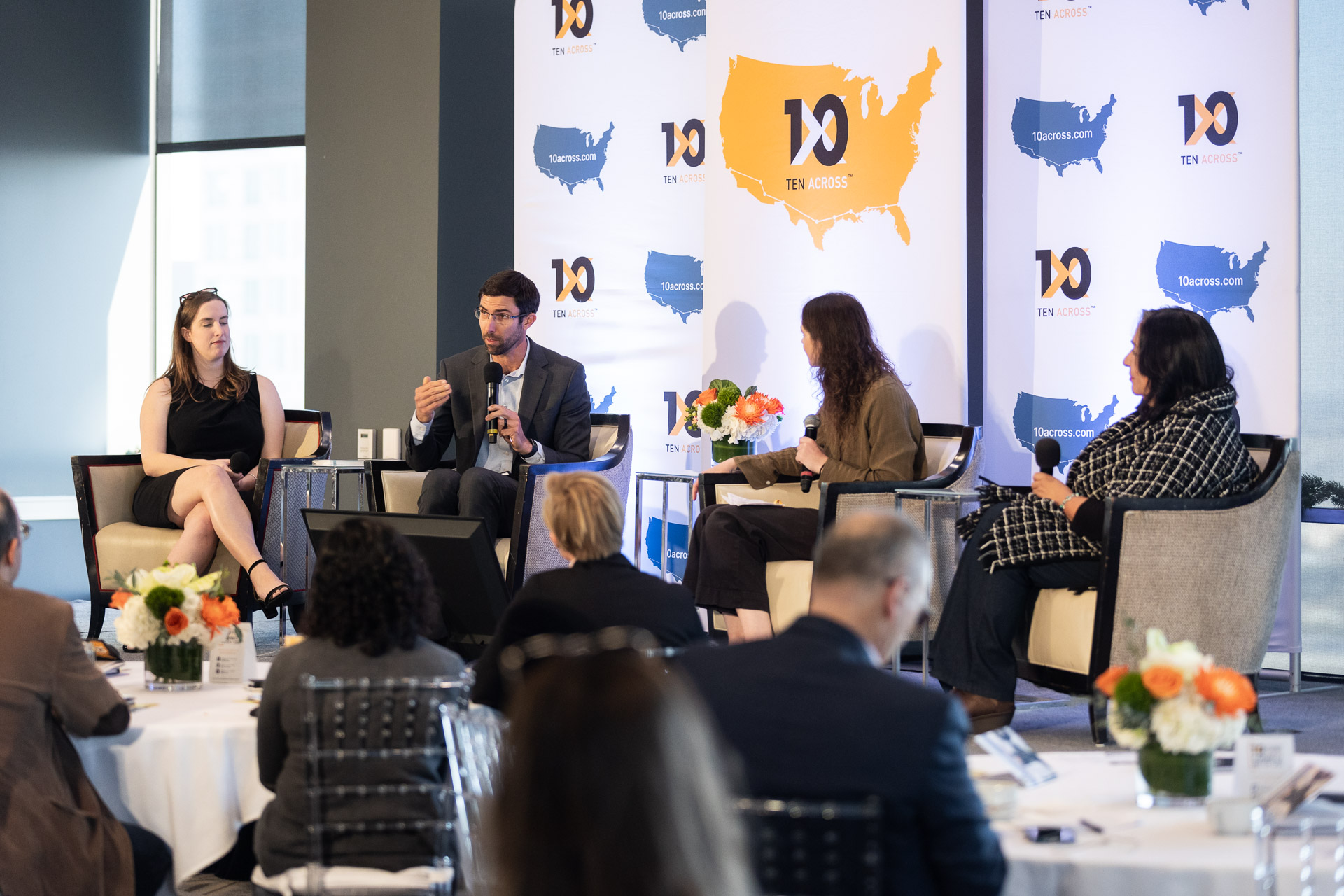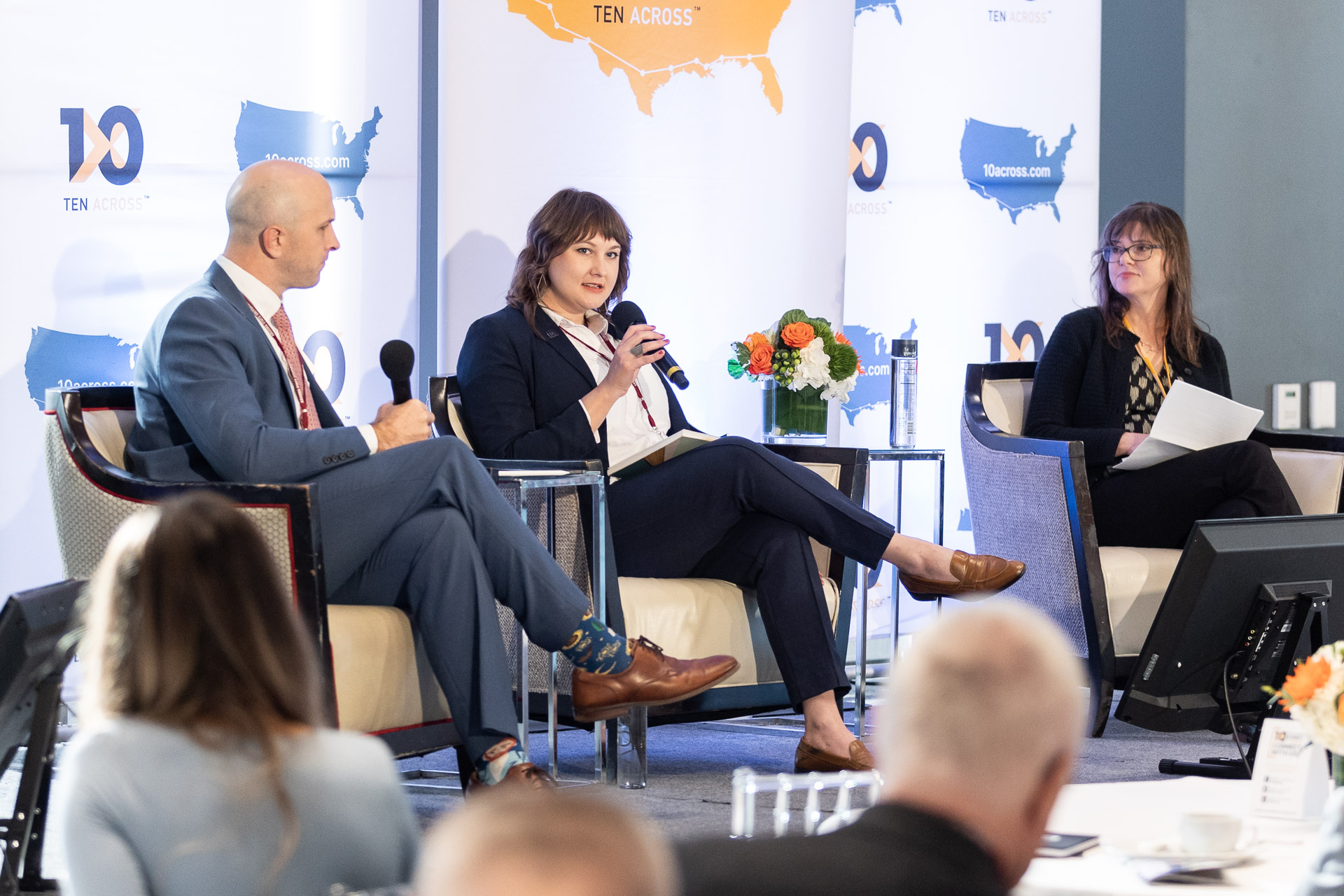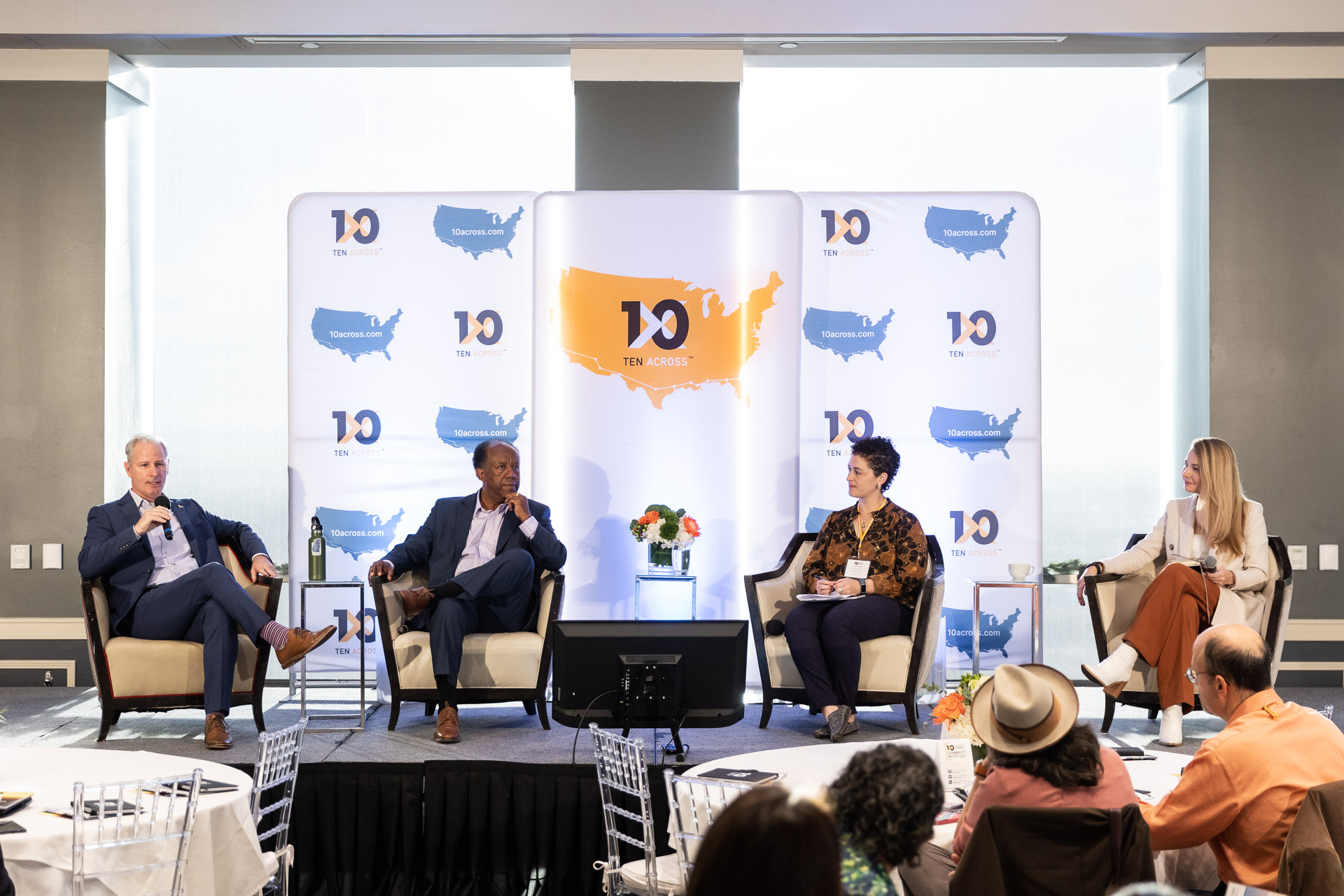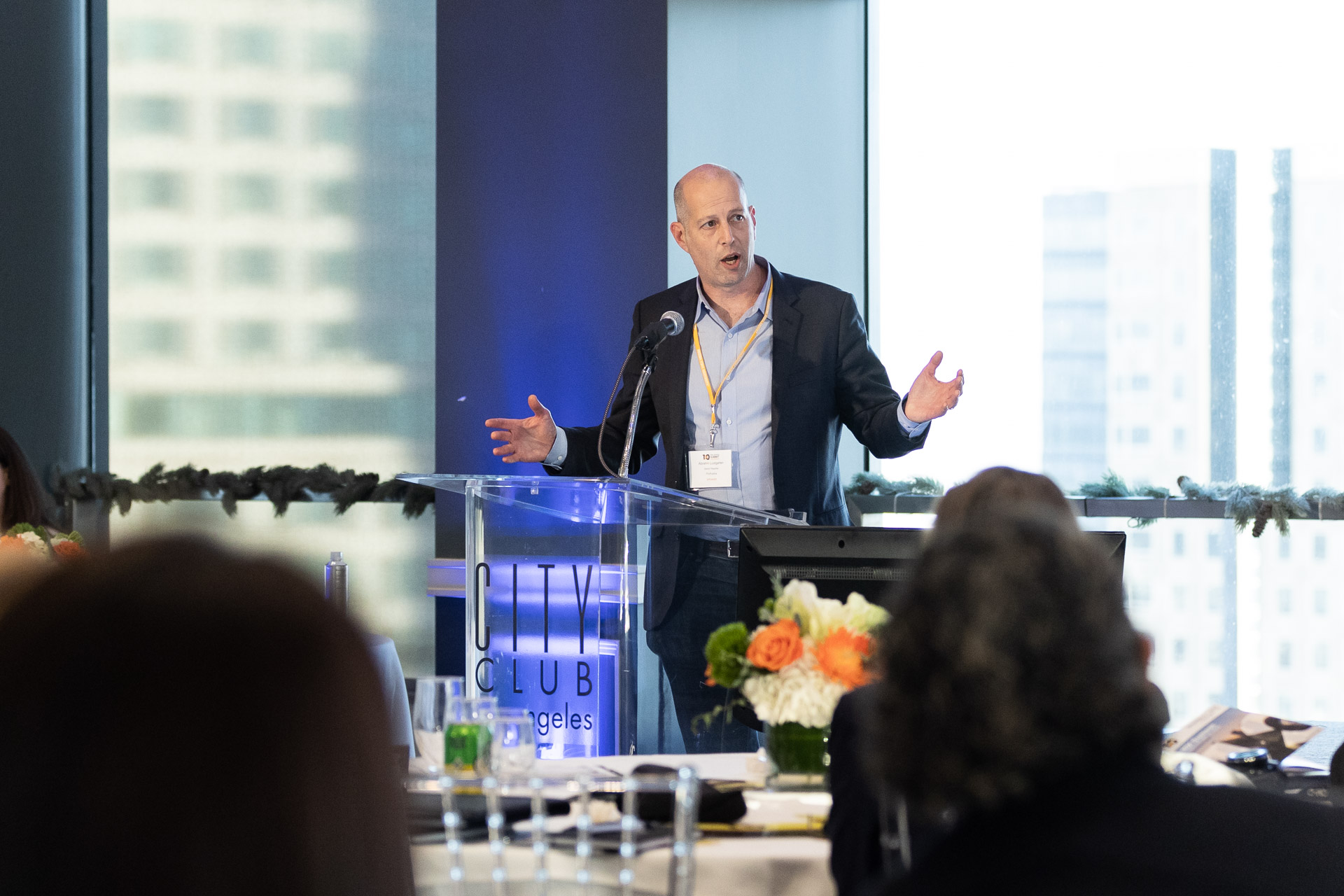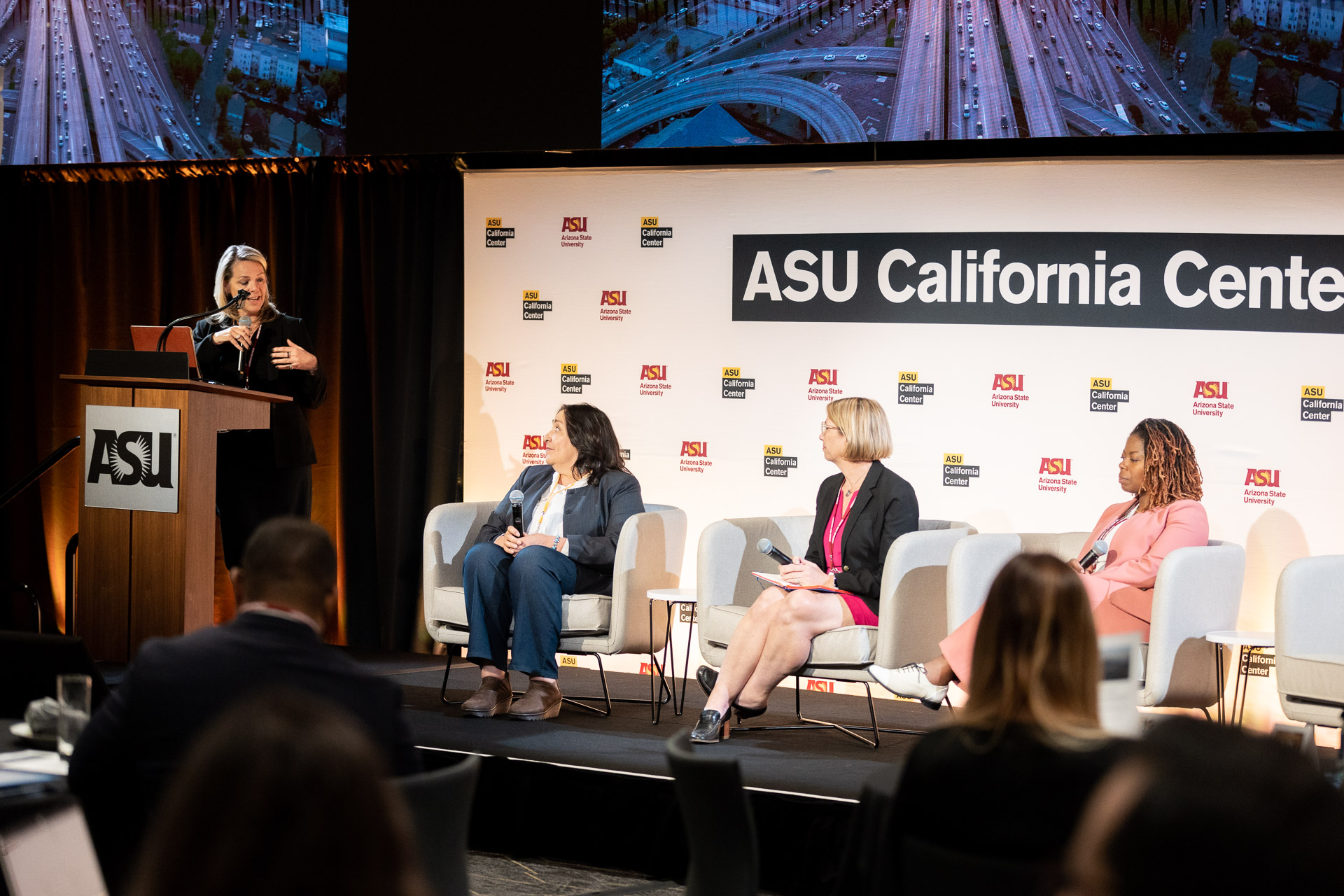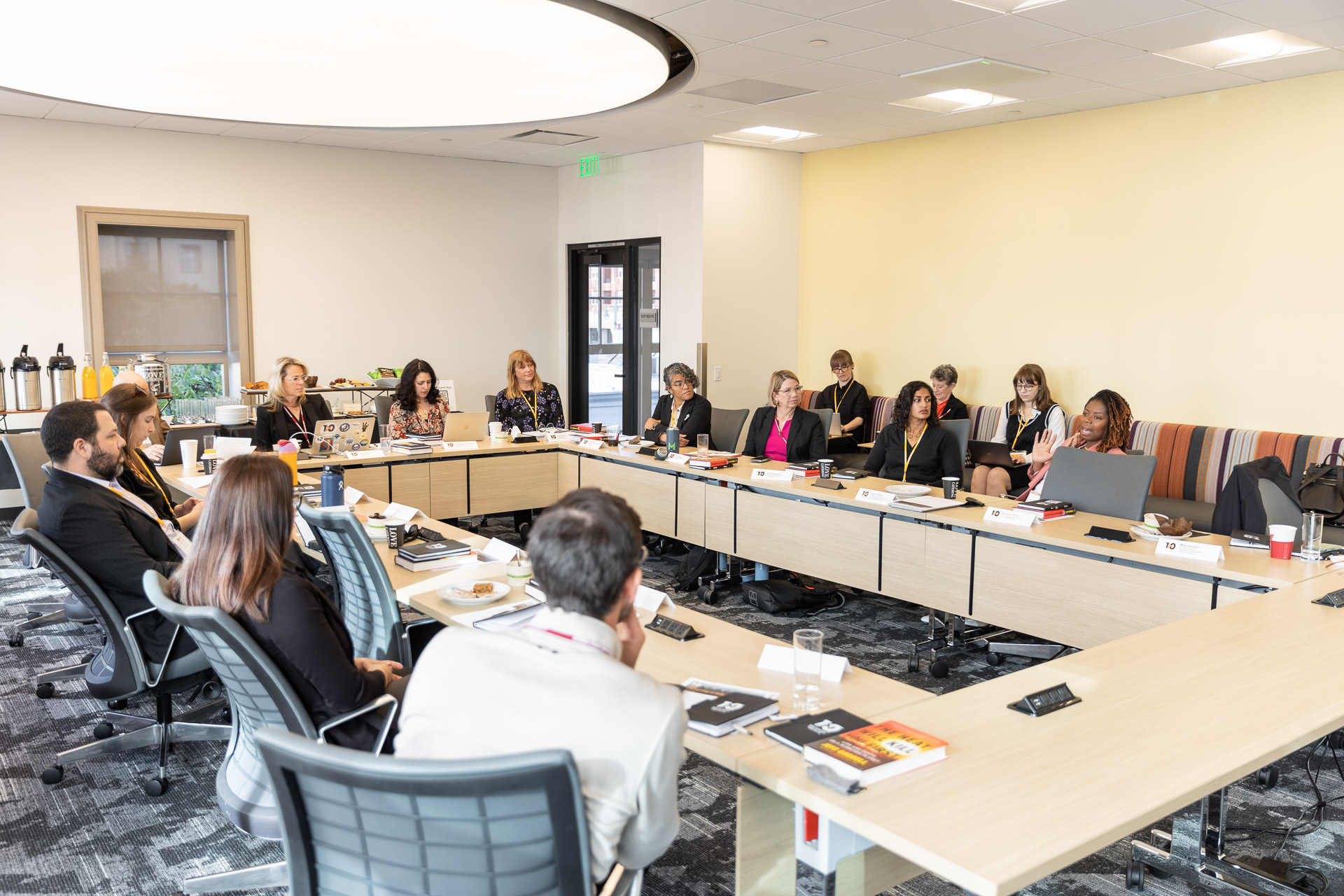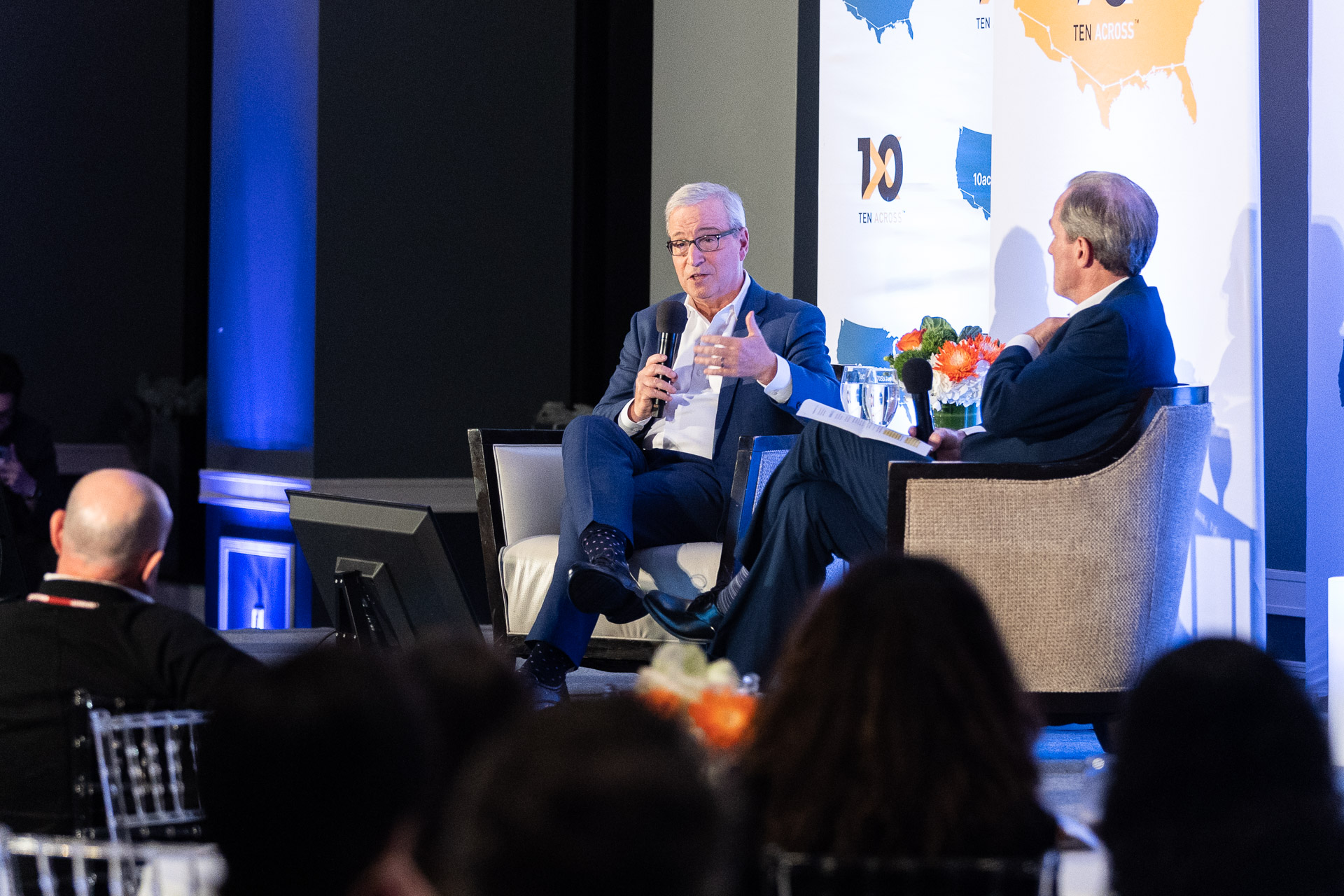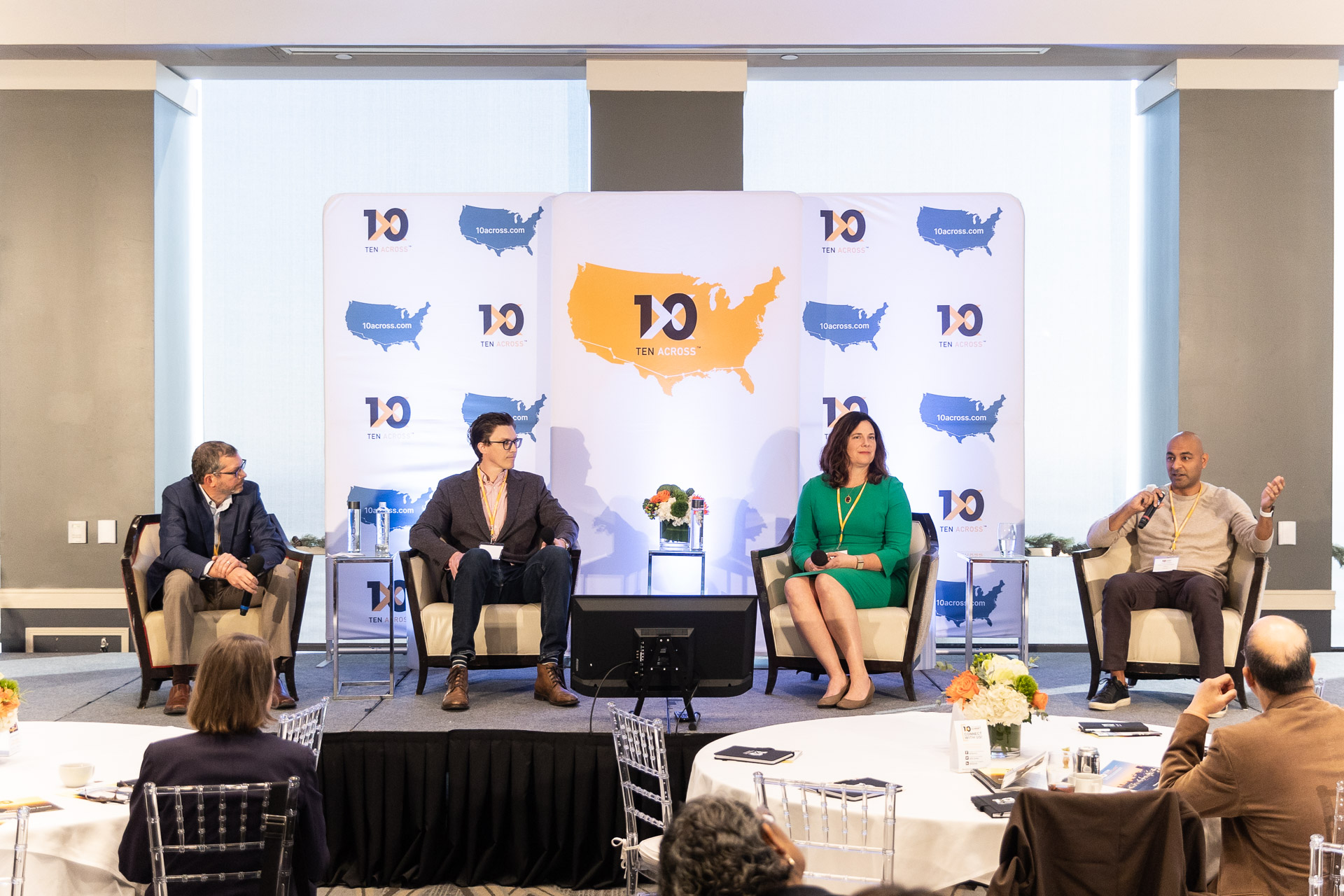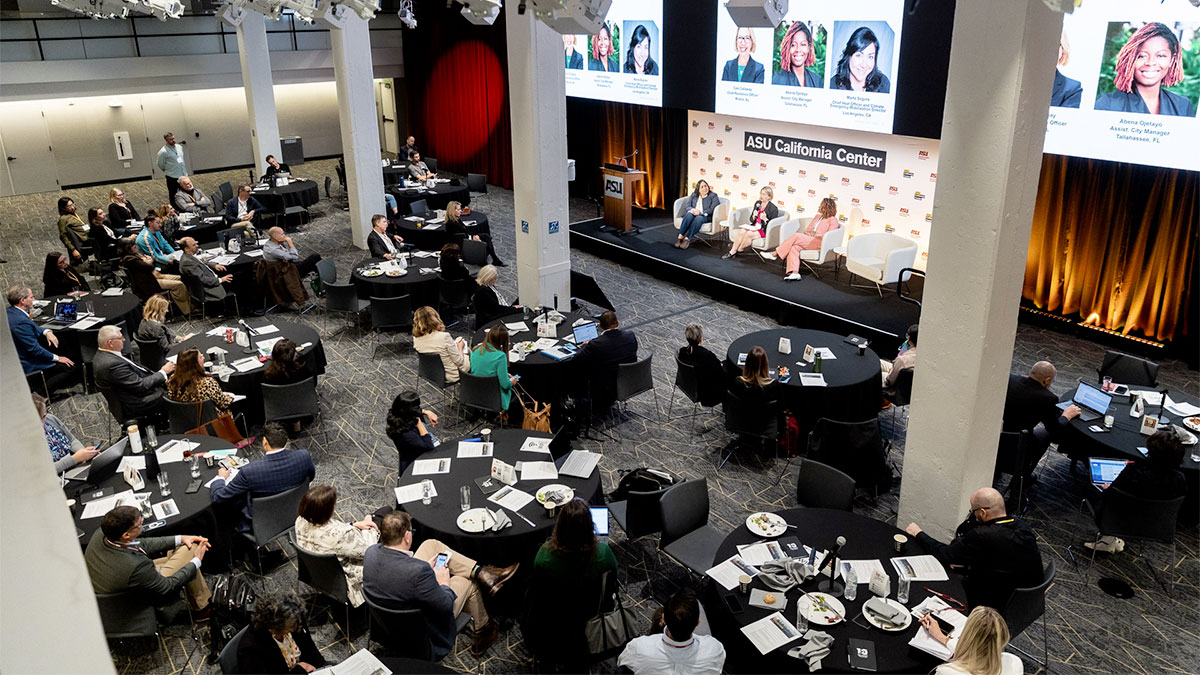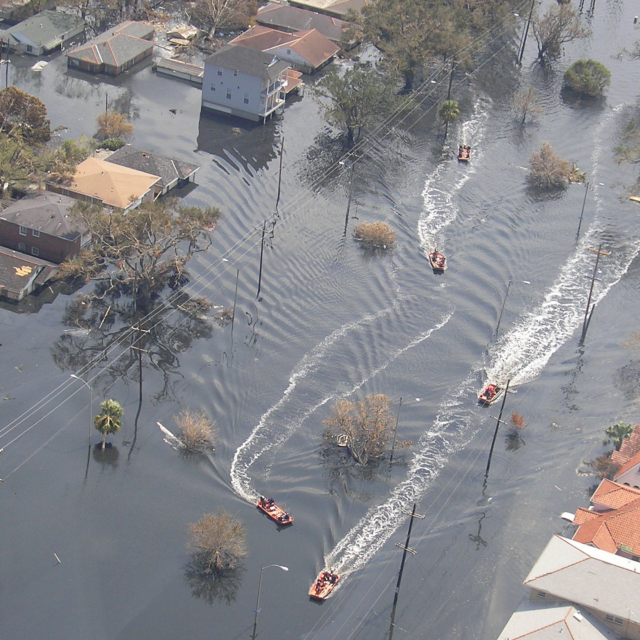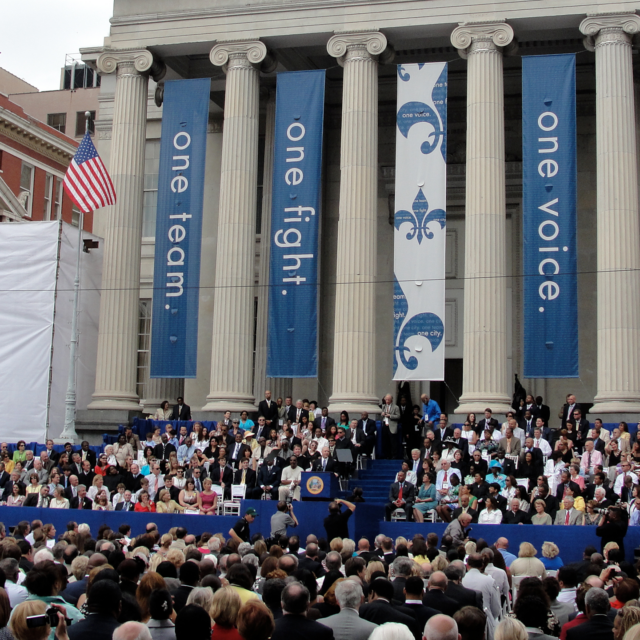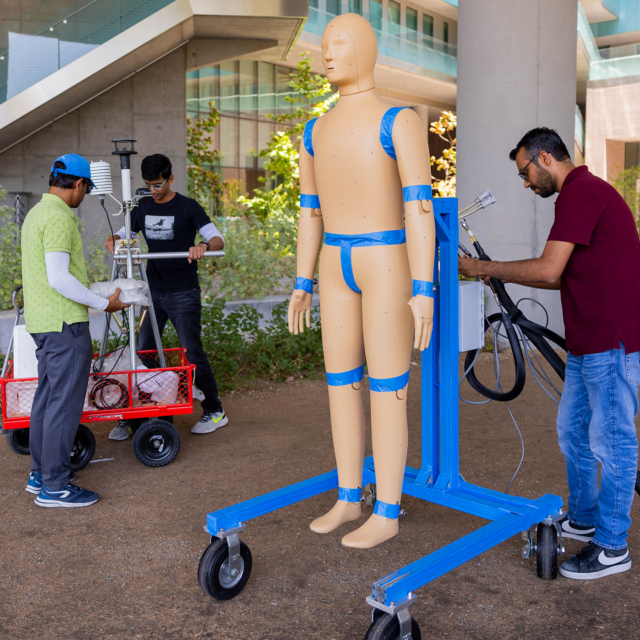Wellington “Duke” Reiter, Ten Across Executive Director, shares his reflections on the recent Ten Across Summit held in Los Angeles, December 5-7, 2023.
Only weeks before the Ten Across Summit in Los Angeles, both the I-10 and the city were in the national news. The cause was a fire beneath the freeway during the night of November 13th, compromising the structure and resulting in the complete closure of one of the most heavily congested roadways in the country. As they worked to navigate around the disruption, many Angelenos were forced to reflect upon the infrastructure that makes contemporary life possible.
While unintended, the uncanny timing of this incident reinforced many aspects of the planned agenda for the Summit: acknowledgement of the fragility of our systems, the need to be proactive with predictive data, and the reconceptualization of a more resilient, green, and humane built environment. The sudden vacancy of the 10 helped to bring some of these points into focus, as I noted in my Zocalo essay on the subject.
From the beginning of the Ten Across initiative, we have made the case that our selected geography is on the front lines of social, economic, demographic, and climate change for the U.S. It therefore seemed appropriate that we launch this Summit with a review of the recently released 5th National Climate Assessment.
As stated in the NCA report, “Even if the world decarbonizes rapidly, the Nation will continue to face climate impacts and risks. Adequately and equitably addressing these risks involves longer-term inclusive planning, investments in transformative adaptation, and mitigation approaches that consider equity and justice.” Our Summit workshops, carefully curated panel discussions, and intentional connectivity were all designed for movement toward these very ends.
Given our geography, the urgent issues of water, urban heat and climate migration were addressed by experts including chief resilience, sustainability and heat officers from the respective I-10 cities. We also discussed the adequacy of the energy grid, transportation networks, insurance and risk ownership—these last being of great interest to participants, considering the influence of private sector interests on our collective response to climate change.
We next turned the Summit conversations toward subjects uniquely illuminated by the Los Angeles backdrop and of critical importance to all of the I-10 cities: the revitalization of urban cores, the new shape of work, the retrofitting of buildings, housing affordability, and, of course, homelessness. And as it has become our signature, we concluded the proceedings with observations from journalists who are taking on the complexities of climate change and the impacts of this work on communities, individuals, and our environment.
On a personal level, it was the commentary of Ron Brownstein, the senior editor for The Atlantic and a senior political analyst for CNN, that brought the most urgency. Those who follow his writing witness his ability to triangulate climate related topics (the energy transition, for example), the unprecedented challenges of the current U.S. political environment, and how they influence each other throughout the Ten Across region.
Based on many decades of experience and with genuine concern for the state of the nation, Ron brought facts, lucidity, and a sense of humor to our lively conversation. Observing the very different notions of governance within the Ten Across study area—and particularly the three most populous states—we concluded that we must somehow find more of what binds us together as a nation if we are going to address the macro issues outlined above. A tall order, but let’s hope that we can create resilience not only in our built environment… but also in our democracy.
In short, we enjoyed an invigorating three days of exchange, no doubt leading to future conversations and collaboration. We are grateful for the contributions of the presenters, moderators, and highly informed participants who made the convening a success. Our thanks to everyone.
For those who could not attend, note that we will be posting all of the discussions on our website shortly and revisiting some of the key findings in upcoming podcasts, writings, and events. Stay tuned!
